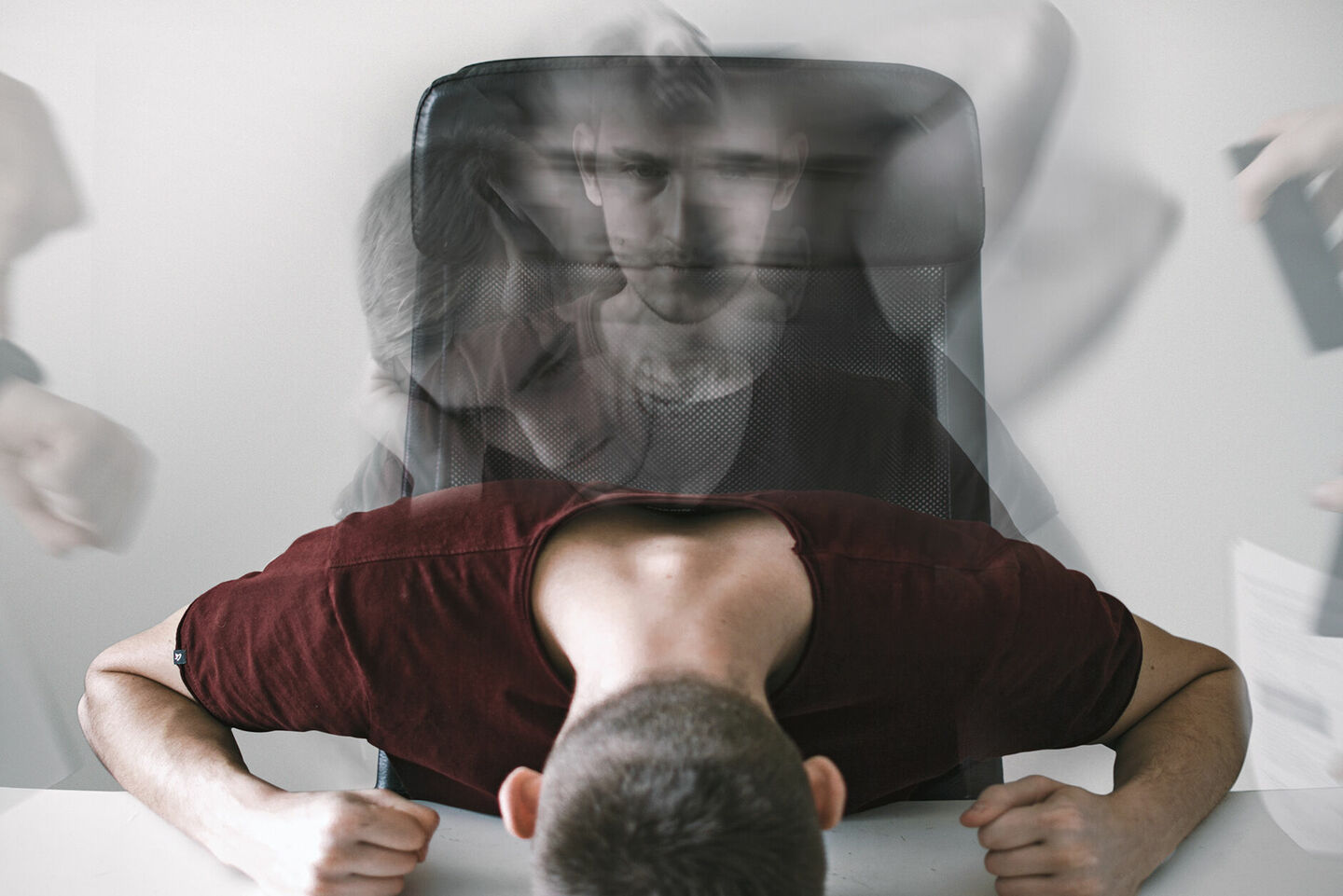
Being a student until you collapse
"Studying this year feels like we are swimming and keep being pushed under water", said a math student during the last exam week, "and when the exams are over we can take a short breath and then we have to swim again." Her friend nods and adds that each exam you don’t pass can mean a study delay and that costs a fortune. Moreover, they do not want to fail: "Every insufficient grade is a huge disgrace."
These students are no exception. The psychological health of students is under pressure - there's no denying that. The friction is found in the binding study recommendation and the termination of student grants, while students also want a lively social life and a have well-filled CV.
A solution is not so easily found. But recognition and understanding, among fellow students and teachers, can already make a difference. This article features stories from TU/e people who speak very candidly about their burnout, about balancing on the edge as well as their lessons learned. Finally, two professionals are interviewed who try to steer student well-being in the right direction at Education & Student Affairs.
Yoram Meijaard (22), master student Computer Science, is a busy bee. He does a lot and what he does, he does well. In his first year (2014) he became a member of the education committee of Computer Science and of the student council of GEWIS. At home in Culemborg he was a scouting leader and an athletics trainer and - on top of all that - he managed to finish his first year at TU/e cum laude.
In his second year he moved to a student room, started with an Honors project, took a seat on the advisory committee for the Bachelor College and became a director of the Honors Students Association, H.S.A Confluente. Working seventy hours a week was no problem, because everything was fun. It was not strange in his eyes; his father is used to weeks in which he works a hundred hours. But suddenly Yoram could no longer move forward; he got Pfeiffer's disease.
"I know now, if it had not been Pfeiffer's disease that forced me to calm down, I would have suffered from a burn out. I put responsibility on responsibility and what I did to relax - meeting, managing, advising - became work as well at a certain moment. At first I thought it was beautiful, but then expectations - of others - were attached to it. That was the problem. Now I am looking for my relaxation in other ways; I read an hour a day and sport an hour a day.
I put responsibility on responsibility and what I did to relax became work as well at a certain moment
However, an hour of sports per day wasn’t happening in the fourth quartile of his second year. "I slept sixteen hours a day and in the rest of the time I dragged myself from the bed to the couch and back again. It was like hell.” He chose one subject instead of three and decided to make a year's run out of the delay that arose. To then in his third year join GEWIS’s dispute ‘In Vino Veritas’ and to become involved with Groep-één. He later became a prose of the fraternity, and member of the University Council.
In the fourth year separate projects were added, as well as a cum laude bachelor and Honors graduation. Now Yoram is a master student of Information Security Technology, a collaboration between TU/e and Radboud University. One of the 'separate projects' is participation in Interstedelijk Studenten Overleg (ISO). "There student welfare is one of the main subjects. We see student board members collapsing and we want to make sure work pressure is something we can talk about." A means for this is the theater evening that he organized in collaboration with Studium Generale.
It is going well now; Yoram has learned a lot. "The realization has come to me that in all facets I’m good, there will always be other people who can do it a little better. If you had said that to me in my second year, I would not have believed you."
Four tips from Yoram
1. Make sure you gather people around you who take care of you if you have a bad day. That day will come. You will make mistakes.
2. Talk to your study advisor. A study advisor can make sure that if something goes wrong, you get help quickly and you will not get further into a hot mess because some rule or regulation is blocking your path.
3. Make sure that what you do is worth it. Ask yourself: why am I doing this? Do I have time for that? Is this the right moment to do it?
4. Make sure you can stop again when you start something.
"It was the worst period of my life," says Pantelis Katsis (20) looking back on last year’s Christmas break. Nothing seemed to work, everything he did felt useless. "As if I ran and ran, but didn’t move forward. All my thoughts became negative. And I know that I’m not that kind of person, which was the most frustrating of it all."
Cursor speaks to him one day after his last exam of Q2. He is relieved and happy, "but you shouldn’t have seen me last week." In general, he is doing better, but he has his ups-and-downs. He is a fourth-year Electrical Engineering student and came from Greece to Eindhoven at the age of seventeen. He knew the city because his sister already moved here earlier.
"I have grown up in a very short time. As a child I did not learn to deal with stress because everything went very smoothly in high school." At the TU/e he feels stress for three reasons. He wants to graduate as soon as possible in order not to make the financial situation too difficult for his parents. He does not want to disappoint them with a son who doesn’t graduate. He compares himself with his sister who does everything absolutely wonderful.
Last year he only just did not pass all the examinations. He did not want to talk to anyone about it and locked himself up in his room. After conversations with his mother and girlfriend, he realized that it was not the end of the world that he would just need to use another year to finish his bachelor. He gave himself a pat on the back and when the days got longer, things went better.
When he comes into a stressful situation now, Pantelis deals with it differently. He looks at it from a different perspective. "What would I say to myself if I were my own friend? And I list all the points and make a plan that is realistic. I am looking for an optimal outcome in an engineering way."
The best tip from Pantelis
"What helps me very well is kick boxing. Punching my way through stress. It tires me physically. It clears my mind and I can eat better and sleep better because of it."
Now he says: "It just happens, it is not bad and I have found my way out", but last winter the PhD student in Industrial Design could hardly answer simple questions about his own research. He collapsed at a meeting with experts. He went home and got back to his research only months later. "I was empty, both mentally and physically."
The PhD student does not want his name and photo in Cursor because he believes this is not helpful with a regards to future employers. "It's no secret that I had a burn out, and I'm open about it, but my co-supervisor made me think about whether or not I would prefer to remain anonymous." The PhD student is afraid that employers will label him with "If we let him work hard, he will break, and then we have someone who costs us money but does not bring anything to the table.”
He will soon enter the labor market because his thesis is already in its final phase. It did not look like that a year ago. During a meeting with experts who did not seem to be impressed by his findings, a discussion about details arose. And those details were precisely his pitfall. "I did not see the purpose of my research anymore, I had lost myself in details." He sat there like a sack of potatoes, he says afterwards, and could no longer answer even the simplest questions. I wanted to, but I could not say more than 'I do not know anymore'. No more knowledge, no interest. A total black out."
I could no longer answer even the simplest questions. I wanted to, but I could not say more than 'I do not know anymore'
He lay down on the couch at home. What the experts had already seen; he was about to shed tears. His girlfriend gave him a glass of whiskey and turned on the TV. He has not been to the Laplace building for about three months, except for returning his belongings. "My supervisor recognized my condition: 'You are stressed out. Bring the stuff from your research that you have at home and close the room well. Disconnect your mailbox and have all mails forwarded to me'."
It was nice, but also difficult to disconnect. "I ended up in self-pity. The health and safety doctor I visited suggested a visit to a psychologist. But I did not want that. Only lunatics go there. There was nothing wrong with me. "He preferred to spend his time on hobbies such as painting pictures.
Big mistake
"After three months I made a mistake: I opened my mailbox. Six hundred urgent mails came in. The panic hit me and my co-supervisor saw it. "What did you do?" Answer: "opened the mailbox. When he then asked me whether I should go to see the psychologist, something just snapped." He was not crazy. And besides, he was fed up with doing nothing. "It now feels like a holiday that lasts just a week too long. That moment you get bored."
From that moment on he started to pick up his work again. Step by step, adding some extra hours every two weeks. More importantly, he has distanced himself and looked again at the purpose of his promotional work. "There was enough material, I didn’t need to arrange more."
Could this entire history have been prevented? "No, not in my case, as strung as I am. I was even warned, but it is the classic story of wanting to do too much work in too little time. But now I do have two guidelines:
1. Keep your focus on your goal. With a promotion, that goal is usually determined after a year.
2. Everything is temporary. A promotion takes a certain amount of time - although I have now applied for an extension. Make sure your goal fits. Four years is just four years and not a whole life.
Yes, she has been biting off more than she can chew. She was not overworked, but a visit to the GP was not superfluous when she thought about her life in a very depressing way. She studied in Delft at the time as a fourth-year student in Maritime Technology. She then made a fresh start at TU/e where she now follows a master's in Innovation Management. We interview her because she is also active as a Lunch Learner and 'accidentally' discusses the Dutch book Nooit meer te druk (‘never too busy again’).
"I have read the book Nooit meer te druk by Tony Crabbe a few years ago. Now I had the opportunity to discuss this book with Lunch Learners for people who do not take the time to read it themselves.
I can recommend the book to everyone. It consists of pleasantly readable chapters and also contains an assignment and experiment per chapter. Examples of those assignments are 'Saying ‘no’ to something once a week' and 'Planning two hours a week in your agenda for project X' and then X can be something relaxing like reading a book on the couch. Or something else fun.
Since I read it, I think differently about dividing my time. I also try to choose more consciously for things that fit within my personal strategic focus. The idea of managing your time just as effectively as a company really appeals to me because of my background in Industrial Engineering.
Actually, I am someone who finds it difficult to say no. And so it happened that I did many nice things and ended up in one group after another. In Delft I was active in the city council and felt a great responsibility. At one point I realized that I was in three committees and also had to finish a difficult study.
I had become cynical. The fun was gone, both during my studies as well as in ancillary activities. I wondered if the committee was not functioning properly or whether it was up to me. I started procrastinating the hardest subjects ... The GP said I had to take it easy. After that I had some conversations with a psychologist and I chose another study.
Stopping my studies in Delft was not fun, but after that I did start to perform better. I received my TU/e bachelor's degree nominally with a 9 for my bachelor final project and I am still active in different groups at the same time. However, I am not too busy nowadays and I am more selective in spending time on the things that really make me enthusiastic. This improves the quality of what I do while the quantity is reduced.
The book made me think. How do I determine a focus in my life? Then I started to pick things up in line with my new study. The great thing is that I am now performing more, while I feel less busy. That's how I ended up at Lunch Learners almost two years ago. I like presenting and it fits my vision of the future, my brand. It adds something valuable for me. And now that I was allowed to present this book, the cycle is complete."
Professor Kitty Nijmeijer can very well imagine what it is like to be stressed out. She did not experience a burnout herself, "but I was on the edge." How that happened and what she learned from it, she explains below. As well as how she, as supervisor of PhD students and graduates, deals with this issue.
"During my graduation I had stress on two fronts. I am a perfectionist and worked very hard on my graduation research about membranes (filters) for CO2 removal. At the same time my parents divorced. That combination was very difficult on me. I was fortunate that, when I was finished, the summer vacation started. I had six weeks of rest and got a chance to recover. Only then I realized that I had been demanding too much of myself. I felt that I was done. I was empty, almost blank. I even did not care about the membranes anymore.
What I learned from this is that I have to stop working when I reach a limit. That I then have to take extra care of myself. Back to a healthy food pattern and restore the rest in my head by creating peace in my agenda.
It's complicated. I have a huge drive to achieve goals. If it seems to go wrong, with wrong I mean not being able to meet a deadline or my own quality requirements, then I'll work even harder. Adding some more hours. That is my pitfall and I find it difficult to protect myself.
The students I supervise often show signs of being under pressure, especially in their final months. But don’t get me wrong, I do believe hard work is part of graduating. A university education is the highest level of education you can follow. You have to put in a proper effort to earn that diploma.
I see that students have a hard time overseeing all their choices. They have to choose what needs to be on their resume, what they do at which association. So many things at once, that causes agitation in the head. I think the bar may be high, but I do pay attention to the behavior and attitude of the students and the PhD students. If necessary, I intervene, then I help the student to create peace again. As a professor, that is also one of my responsibilities.
Often it is enough to say things out loud. "I see you are tired." Or, "I miss your enthusiasm." If that is recognized, and that is usually the case, we will make a plan together. What are you going to do next?
Own turning point
I remember how I felt in the time of my promotion. It was the worst period of my life. I was so happy when that was over! You compare yourself with other researchers. If they have immediate results, if the equipment does work there, if they do get support ... I became very insecure. I even wondered if I would ever graduate. And I was also shocked by that insecurity.
I was struggling with this alone for almost three years. I worked so hard. When I’d arrive at the university, I was already looking at how the experiments from the night before had turned out before I even took off my coat. Sometimes I cried about it at home. Until one day I talked to an associate professor. He advised me to tell my supervisor. He reacted very well. He stated: 'If you give it your best, I will do too. Together we'll make it work'. I felt he had faith in me en that was enough."
She was at the lecture Studium Generale held about work pressure among people in their twenties and was afterwards open to share when she was suffering from too much work pressure - but didn't want her picture taken. Ezgi Aytekin, now a fourth-year Industrial Design student, does not think she was suffering from a burn out, but she did have a breakdown in her second year.
"The work pressure became too much for me when I felt like I was not doing my best for any subject or project. The fact that I no longer knew where to start, was lagging behind with all sorts of tasks and it did not work anymore, that was the moment I knew I had to change something."
At that time she had two projects and two subjects at the same time and found it difficult to plan because she had to take into account several people with different agendas. "I noticed that it was too much at the moment that I no longer knew where to start, and how to set priorities. Eating and sleeping went well, but the quality and duration of sleep had decreased. "
My mother happened to be there when I could not stand it anymore and started crying out of frustration
In retrospect, it has been an educational experience, she says. She did not suffer a study delay due to this incident and it was not necessary to go to a study advisor. "The quality of the work I delivered was not as good as before, but that was the only thing that went wrong." Now she knows that it's good to ask for help. "It’s okay if you sometimes do not know what to do and it becomes too much for you. Instead of stressing, take it easy, set priorities and communicate your feelings well with those around you. It is only good to ask for help.”
TU/e has several student psychologists available, with whom you can schedule an appointment. Keep in mind it might take a while before you can see them; there is a waiting time. Annemarie Urselmann, manager Student Facilities at Education & Student Affairs, explains why there is a waiting time in the article below.
If you want to make an appointment with a student psychologist at TU/e right now, you can get one starting from January 3. Those weeks of waiting do not look inviting. Annemarie Urselmann, manager Student Facilities at Education & Student Affairs (ESA) thinks that a waiting time is insurmountable and it’s currently a bit longer than usual, partly due to the focus on the workload among students. "Think of the recent meetings of Studium Generale."
She explains that there are busy and less busy periods throughout the year. "In the run-up to the exam period of the first quartile it is busy and afterwards, when the results are received, we see a peak as well. There is also a peak visible in the last quarter of 2018. The waiting time is a bit longer, as is the case now. "ESA's student psychologists talk to about five percent of the student population and that figure has been fairly stable over the last years."
On average over those years the waiting time has been about three to four weeks. To be more precise: Over the past five months, it has been 22 calendar days, including weekends. There has been a significant increase since mid-October. "Compared to regular mental healthcare where we see waiting lists of seven or eight months, this is short. At the TU/e we are able to see and guide the students relatively quickly and without the need for a referral from a general practitioner. We offer fast and low-threshold help, for free. In doing so, we take into account the urgency per situation."
ESA employs three student psychologists and uses a freelance psychologist. They are there for mild psychological complaints, like gloom, low self-esteem, fear of failure and little self-confidence and they aim for the students to achieve their goal (read: their request for help) with short interventions. If a treatment is required, the student is referred to the general practitioner to make an appointment with the GGZ.
"Guiding students is broader than just the student psychologist," Urselmann emphasizes. "Also consider coaching from the faculty by the study advisor and student mentors. The TU/e also offers free training courses in the field of study management, dealing with pressure and exam stress, fear of failure and self-confidence. Of course, the impact of the growth in student numbers is also being examined. For 2019, a slight growth in capacity is foreseen in the budget. Prevention is explicitly on the agenda and is a main subject of discussion with student associations and teams."
One of the student psychologists who are called in by ESA is André Rozendaal. He receives the students in a consultation room in MetaForum where the only distraction is a wall-filling image of a sea turtle. "Students come with various personal questions. About not feeling comfortable due to gloom or anxiety and tension problems, regarding not feeling comfortable in groups, or fear of failure in their studies. Or with identity questions, an addiction, trauma or problems on a sexual level. But also to ask how to deal with a diagnosis such as autism or ADHD."
Rozendaal explains: "If students have stress issues, they always worry about something. That worrying can then cause problems regarding mood, concentration and, for example, sleep. A reaction from a student can roughly go in two directions. Or students try to suppress their complaints through avoidance behavior, or he or she will deal with the cause of the stress complaints."
Those who do not want to face study stress can quickly flee into procrastination behavior. From gaming, social media use and Netflixing to parties, drinking and drug use. Everything not to think about the study pressure. If you want to tackle the cause of the stress, you can try to get hold of the problem together with a psychologist. By answering the right questions, the cause can be unraveled and a strategy can be devised to reduce the stress.
Those who do not want to face study stress can quickly flee into procrastination behavior like gaming, social media use, Netflixing, drinking and drug use
"Stress is always a result of something. Of the compulsory number of credits for a positive BSR (Binding Study Recommendations, ed.), for example. Or of the debt that keeps rising with each study delay. Or things that happen in the private life. What certainly contributes to stress is that many students compare themselves to the perfect pictures that pass by on social media."
If in one of the discussions it can be explained that the demands and expectations that students set for themselves lead to inner conflict and therefore tension, Rozendaal sees recognition. "And then we can figure out what the student himself has an influence on. He can look for ways to relax, create a schedule, ask for help, et cetera." A motto of the student psychologist is: "Worrying is nonsensical, the only thing that makes sense is taking care of something."
Trend
Statistics Netherlands (Centraal Bureau voor de Statistiek) recently reported that the psychological condition in young people has hardly deteriorated, Rozendaal takes with a grain of salt. "The number of young people with complaints rose from 8.8 to 10.9 percent. You can also call that an increase of a quarter and find it alarming. But I think you should see these types of research only as an indicator. Professionals see a rising trend in the number of stress-related complaints among students. Even in secondary school students, by the way." The emphasis nowadays on excellence is disastrous, according to him. The TU/e also has an Honors program. "You only excell when you feel safe."
But it looks so good on your resume, right? "It's good to think about your future, but if you fill your resume to stay ahead of the competition, you're not busy developing yourself, but with a struggle."
Group training sessions ESA
ESA offers students training courses: 'Increase your self-confidence', 'Overcome your fear of failure', 'Presenting convincingly' and 'Dealing with stress'. The courses are given in groups of up to ten students and they meet about five times. The help and the mutual recognition are the most powerful tools in these courses.

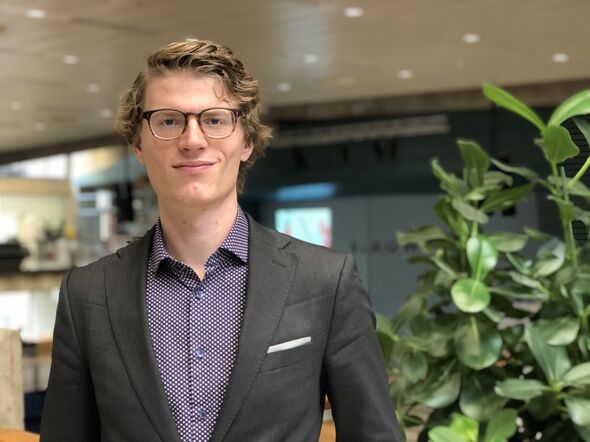
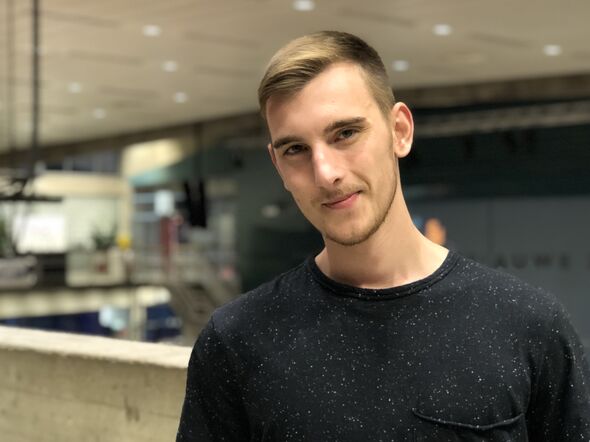

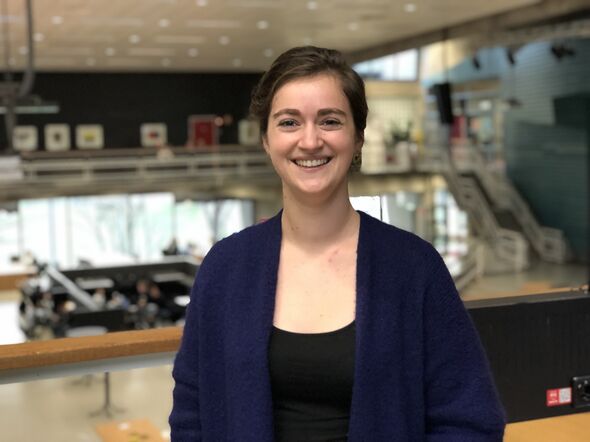
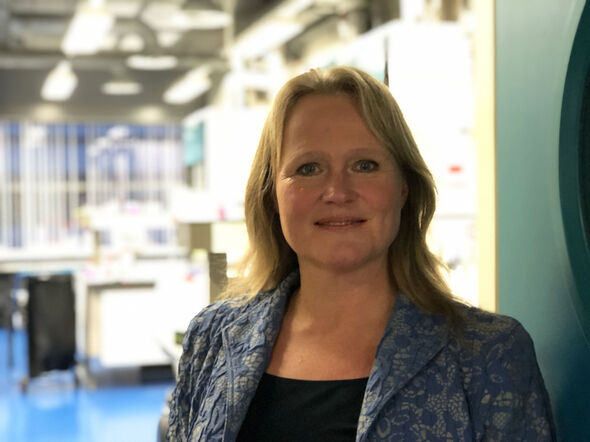
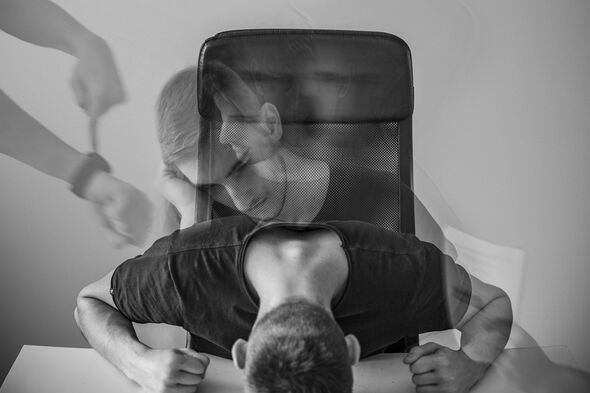
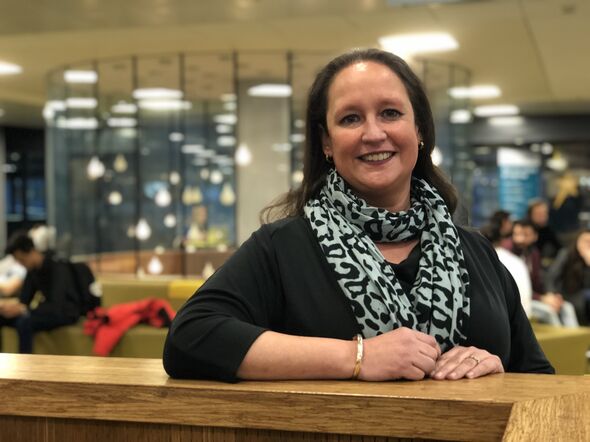
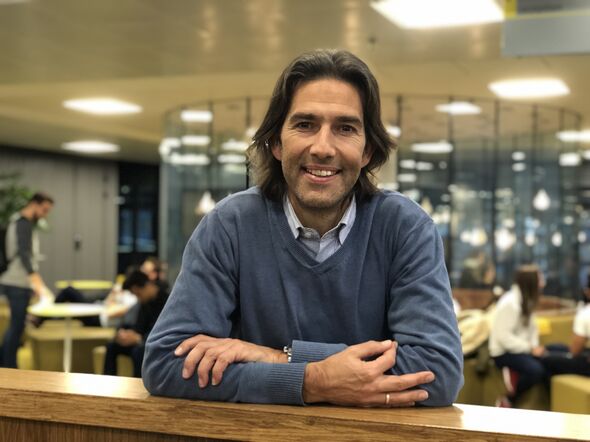
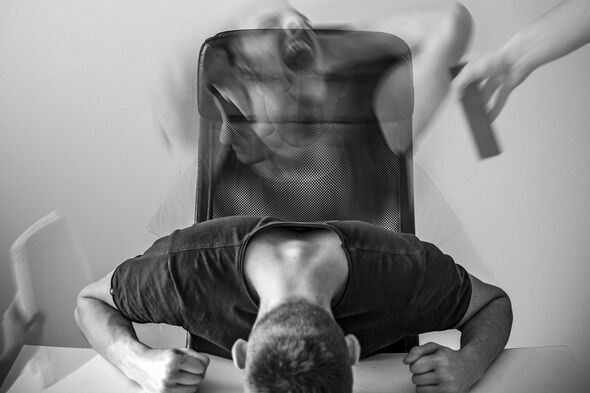
Discussion